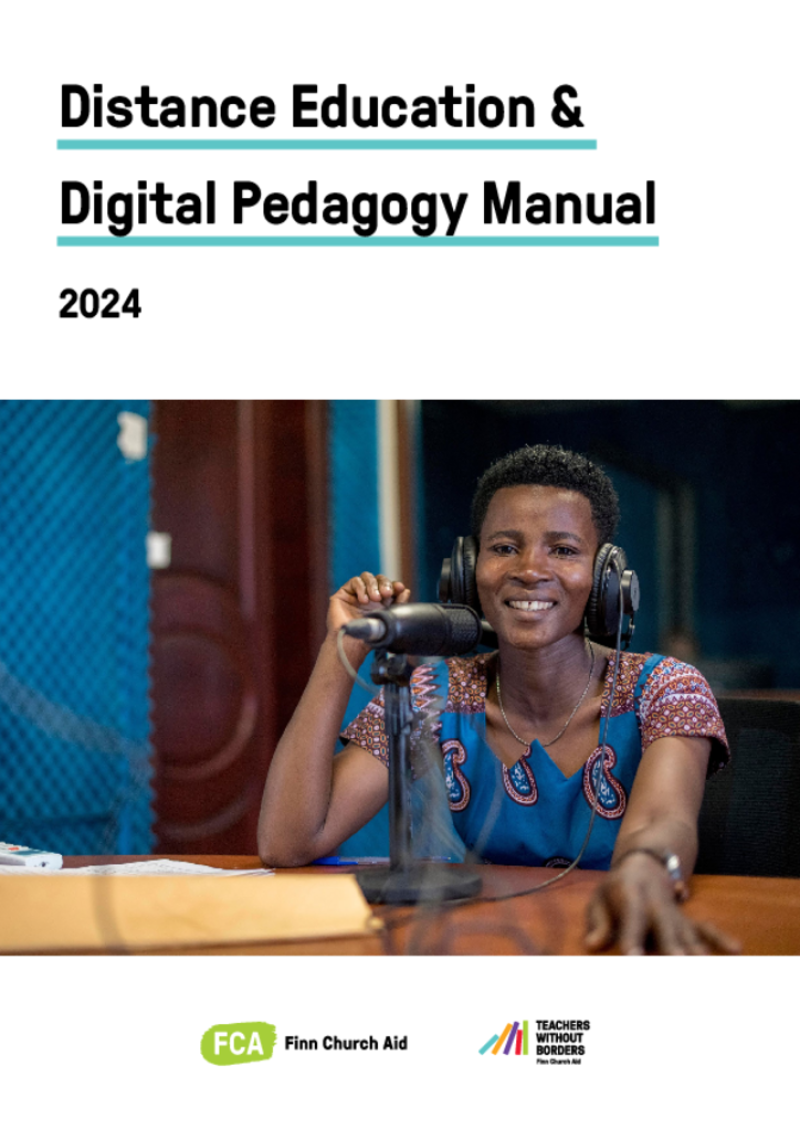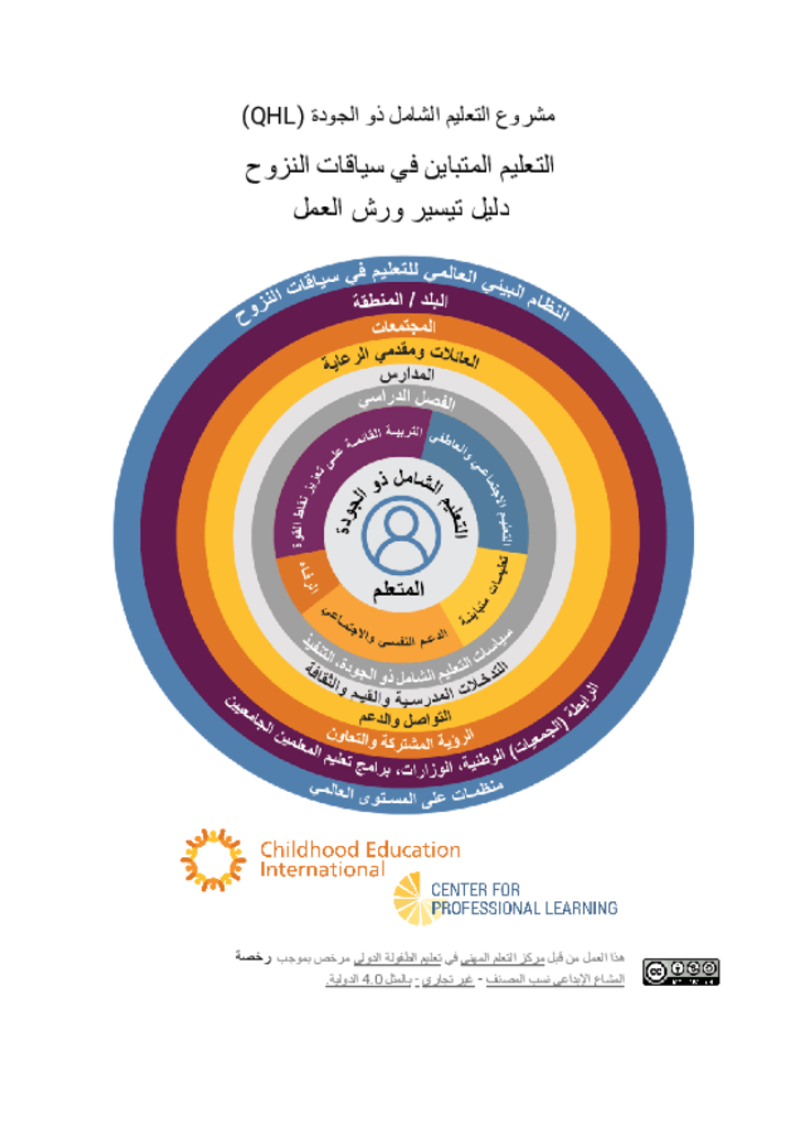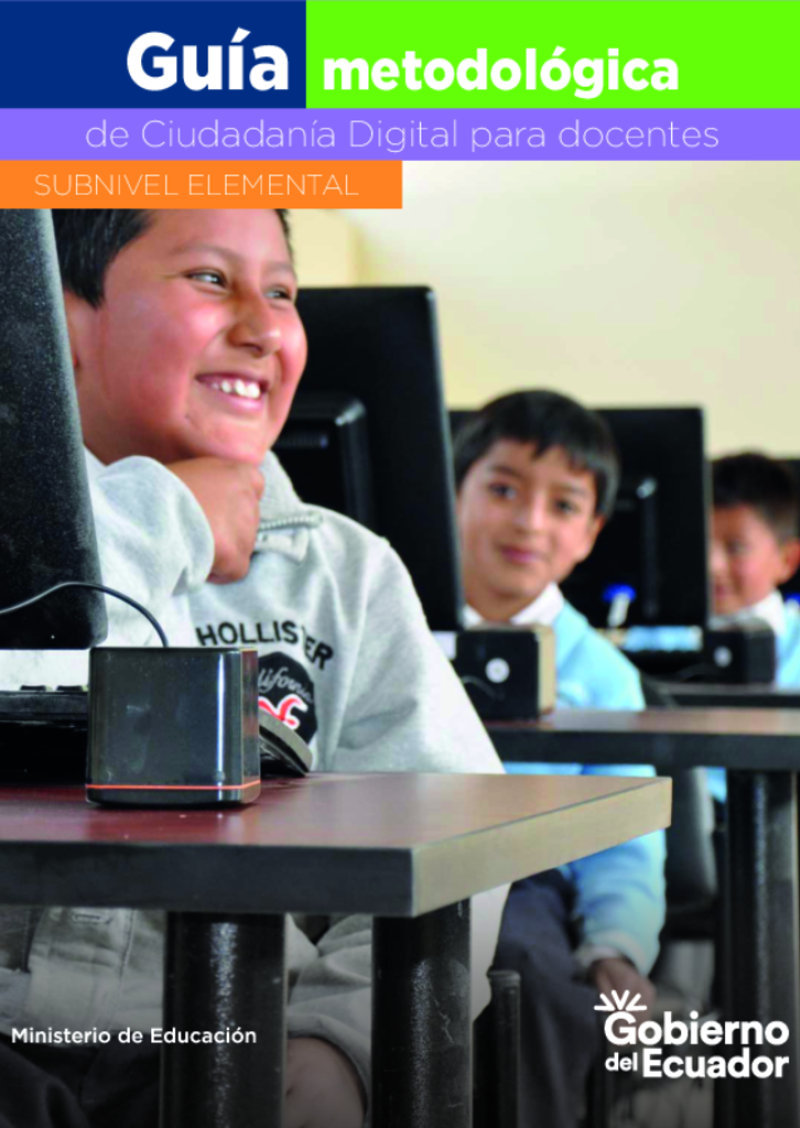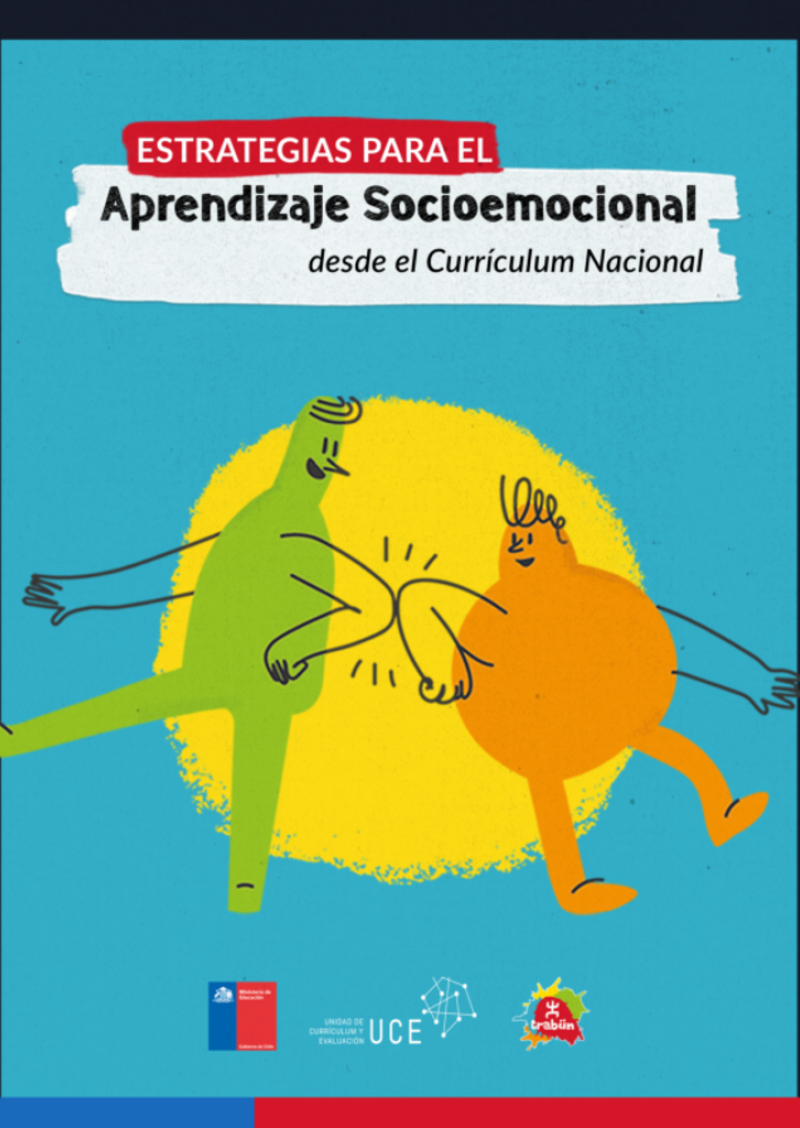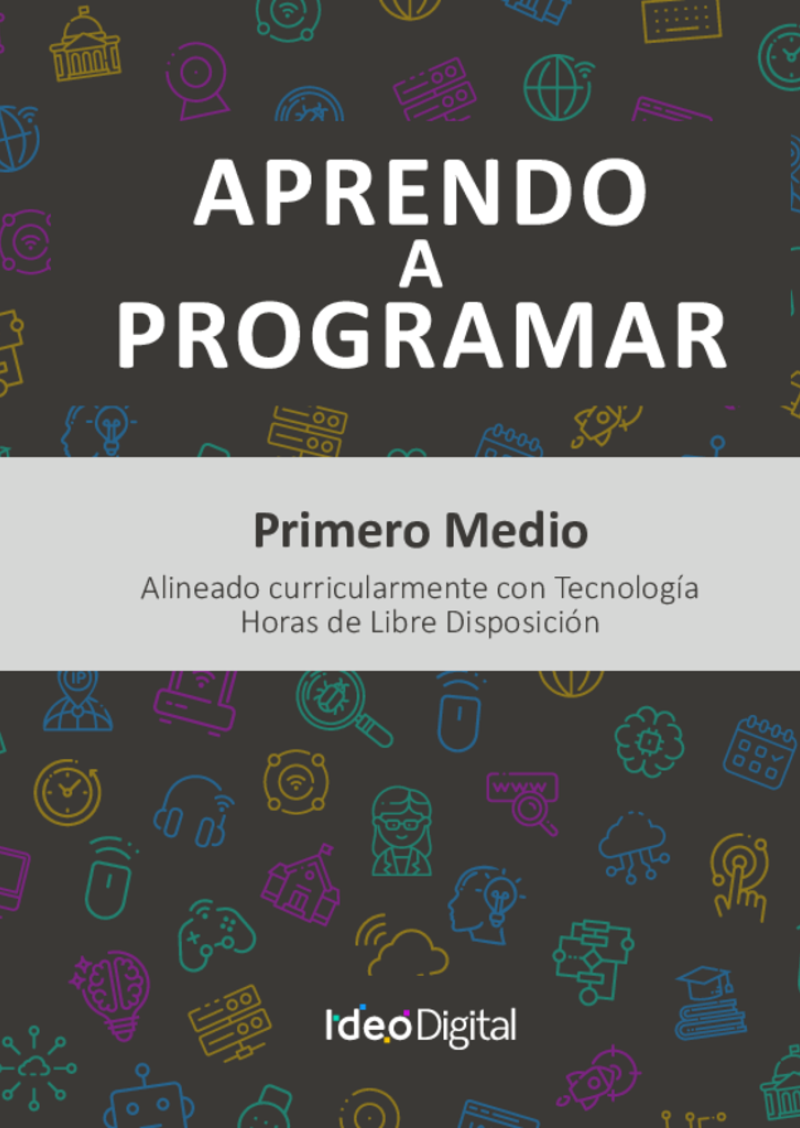مركز موارد المعلمين
عرض 1 - 17 من 17
FCA & TWB Distance Education & Digital Pedagogy Manual
This teacher training manual on Distance Education & Digital Pedagogy supports teachers and other education personnel’s continuous professional development in pedagogically high-quality distance education and remote learning especially in diverse, low resource contexts and is adaptable for use anywhere in the world.
The manual has been developed by Finn Church Aid (FCA) and Teachers Without Borders (TWB) Finland. The development of the training materials began already in 2020 as a response to the school lock-down situations caused by the COVID-19 pandemic, when teachers and learners quickly had to adapt to remote education modalities. Even though the pandemic has subsided, the need for quality distance education prevails. Ensuring the continuity of learning for all learners is critical in all contexts, even and especially during crisis situations.
The training manual consists of eight (8) training modules that can be used flexibly:
- Distance Education,
- Distance Education Modalities,
- Pedagogy of Digital and Distance Education,
- Psychosocial and Emotional Wellbeing,
- Learner-Centred Methods in Distance Education,
- Home Support – Parents and Caregivers’ Role and Collaboration,
- Inclusive Education, and
- Assessment and Evaluation.
The content design allows the trainer or facilitator to pick individual modules or sessions and adapt the training content according to the context and target group’s needs.
We hope you find it useful!
التعليم المتباين في سياقات النزوح دليل تيسير ورش العمل
في هذا الدليل، هناك مطالبات لدعم استكشاف المحتوى والتطبيق على السياق المحلي. هناك أيضًا نصائح لدعم المعلمين أثناء توفيرهم للمساحة والوقت للتعلم المهني في حياتهم المزدحمة والمجهدة في كثير من الأحيان. أخيرًا، يقدم هذا الدليل بعض النصائح فيما يتعلق بالجوانب الإلكترونية و/أو الجوانب التكنولوجية الأخرى لهذا التدريب.
يهدف مشروع التعلم الشامل عالي الجودة (QHL)، والذي تعد ورشة العمل وجهًا لوجه أحد عناصره، إلى إعداد المعلمين لتقديم دروس عالية الجودة تدعم التعلم الشامل للأطفال والشباب من خلفيات متنوعة (اللاجئين والمهاجرين و/ أو المواطن) داخل البلد المضيف وسياقات النزوح والأزمات. إنهم يعرّفون التعلم الشامل عالي الجودة بأنه ذلك الذي يهتم بما يلي: ● التطوير الأكاديمي والمعرفي وتنمية الهوية، ● التعلم الاجتماعي والعاطفي، و ● الرفاه العقلي/النفسي الاجتماعي والجسدي والذي يوفر: ● تجارب مدرسية إيجابية، ● مشاعر الانتماء والانتماء السلامة، ● النمو والتطور، و ● نتائج عادلة لجميع المتعلمين.
Guía metodológica de Ciudadanía Digital para docentes - Subnivel Elemental
Este recurso sobre ciudadanía digital ofrece definiciones clave y aborda problemáticas como la alfabetización digital, la convivencia en línea, y la protección y seguridad. Se exploran temas como la autorregulación, la privacidad, el discurso de odio, el cyberbullying y el grooming. Además, se fomenta la reflexión sobre noticias falsas, identidad digital y estereotipos, así como la creatividad y participación en el entorno digital. También se discuten los derechos digitales y la legislación relacionada con el uso seguro de Internet para niños y adolescentes en Ecuador.
Estrategias para el Aprendizaje Socioemocional desde el Currículum Nacional
Este manual ofrece a los docentes el contexto necesario para implementar el aprendizaje socioemocional en el aula. Proporciona una base teórica y se alinea con el currículum nacional chileno. Incluye ejemplos de actividades que pueden desarrollarse en diversas materias y espacios de la vida escolar, abarcando desde la educación primaria hasta la secundaria. El objetivo es facilitar la integración del aprendizaje socioemocional en las prácticas educativas diarias, promoviendo un ambiente escolar más inclusivo y comprensivo.
Aprendo a programar - Primero Medio
El objetivo pedagógico de “Aprendo a programar” es integrar la programación y el pensamiento computacional en el sistema educativo chileno, destacando los Objetivos de Aprendizaje de las Bases Curriculares. Las lecciones, tanto en línea como sin conexión, fomentan la resolución de problemas mediante programación y el uso de recursos educativos. Esta propuesta continúa el Programa Fundamentos de la Computación, fortaleciendo conceptos y habilidades tecnológicas, y ofreciendo estrategias didácticas para mejorar el aprendizaje y la evaluación.
Educajeux - Manuel de pédagogie vidéoludique
Ce manuel explore le jeu vidéo comme outil d’apprentissage interdisciplinaire et support culturel à décrypter. Destiné aux enseignants et éducateurs, il propose des ateliers variés et des fondements pédagogiques pour intégrer le jeu vidéo dans les pratiques éducatives. En favorisant l’apprentissage par l’essai-erreur et le « learning by doing », cette ressource encourage à utiliser le jeu pour illustrer des notions abstraites et renforcer l’engagement des élèves. Elle offre aussi des essais contextualisant ce type d’apprentissage, invitant les enseignants à reconsidérer ce média et à l’utiliser comme levier pédagogique innovant.
Play & resilience: a toolkit for teachers, caregivers, and other stakeholders
Play is an easy, natural and universal practice that builds resilience. Play comes naturally to all children- and is a seemingly simple and light-hearted phenomenon. The power of play as a pathway to building resilience needs to be leveraged to provide children with the opportunity to further explore play in their home and school environments.
This toolkit is therefore premised on the objectives to build the capacity of various stakeholders such as caregivers/teachers, school managers, curriculum planners and policy makers who are key actors in the process of growth and development of children. It is also aimed at equipping these stakeholders with the knowledge and pedagogical skills to translate research, policy and curriculum to practical knowledge and activities for children in the school environment. The toolkit offers directions for facilitators who will be working with caregivers/teachers using the materials and resources provided and other relevant materials available in an environment where it will be used.
A Teacher's Guide for Arts, Music and Drama in Africa
Art, music and drama have had a pivotal role in the livelihood of human beings. This is clear by the wealth of literature, architecture, fine art, theater and music that define human past, present and future. The inherent creative ability and a yearning to express ourselves is what gives value to art, music and drama as companion components in human evolution.
This teacher's guide covers art, music, dance, drama, experiential learning, community engagement, and how to integrate these aspects into curriculum. Additionally, this document provides lesson plans for primary school students in these subject areas.
Global citizenship education in a digital age: teacher guidelines
This publication has been designed both for new and experienced teachers, as well as other professionals working in non-formal education settings that engage with upper primary and secondary students.
Purpose:
1.By using principles of GCED, digital citizenship, and media and information literacy, the guidelines aim to build the capacities of teachers to prepare learners to understand the implications of global and digital transformations on education, and to build opportunities to practice ethical and responsible behaviours in physical and digital environments. They provide guidance on tapping into the positive potential of the digital transformation, including through new access to information, possibilities of connection, and the creation of tailored content.
2. Build learners’ capacities to think critically about the influences and content that they encounter and engage in creating in physical and digital spaces.
3. Shape learners’ understanding of global challenges and how they can contribute to the Sustainable Development Goals (SDGs) through globally oriented digital citizenship.
Media and information literate citizens: think critically, click wisely!
This pioneering curriculum presents a comprehensive competency framework of media and information literacy (MIL) and offers educators and learners structured pedagogical suggestions. It features various detailed modules covering the range of competencies needed to navigate today's communications ecosystem. This resource links media and information literacy to emerging issues, such as artificial intelligence, digital citizenship, education, education for sustainable development, cultural literacy, and the exponential rise in misinformation and disinformation. With effective use of this media and information literacy curriculum, everyone can become media and information literate as well as peer-educators of media and information literacy.
This UNESCO model MIL Curriculum and Competency Framework for Educators and Learners is intended to provide education systems in developed and developing countries with a framework to construct a programme enabling educators and learners to be media and information literate. UNESCO also envisions that educators will review the framework and take up the challenge of participating in the collective process of shaping and enriching the curriculum as a living document. The first edition and this second edition of the MIL curriculum have benefited from several series of collaborative and intercultural expert debates and recommendations. The curriculum focuses on required core competencies and skills which can be seamlessly integrated into the existing education system without putting too much of a strain on overloaded education curricula.
The target groups for the curriculum are essentially educators and learners. Educators and learners are understood in the broadest sense of the terms to include teachers at the secondary and primarily tertiary levels, persons involved in training or learning on all forms in NGOs, CSO, community centers, the media, libraries, online or offline. Given that the curriculum was developed with adaptation in mind, it can be used by various stakeholders interested in the field of MIL. Users may need to adapt the content to make it more relevant or accessible to specific target groups. The curriculum is also relevant to government officials and ministries, and other social and international development organizations.
How to use ICT tools in teaching and learning
This booklet presents a selection of ICT tools to integrate into teacher training in Uganda. Every tool is accompanied with creative ideas and suggestions on how to engage learners and enrich lessons.
ETF READY model
The European Training Foundation's READY model (Reference model for Educators' Activities and Development in the 21st century) offers a structured way to identify the professional practices and development needs of the 21st century educators.
كيف تصمم درساً إلكترونياً في 24 ساعة
يتعرف التصميم التعليمي للتعليم الذكي
يحدد المشهد العام للتصميم التعليمي في التعليم الذكي
يفهم الخطوات الخمسة لتخطيط الدرس في التعليم الذكي
يشرح المتطلبات اللازمة لتصميم جلسة في التعليم الذكي
يصمم جلسة في التعليم الذكي باستخدام جوجل كلاسرووم Google Classroom
كيف تُصبح معلماً عن بُعد في 24ساعة
يتعرف تكنولوجيا التعليم الإلكتروني.
يحدد المكونات الرئيسية للتعليم الإلكتروني.
يحدد أدوات إدارة العملية التعليمية في التعلم الإلكتروني
يستخدم أدوات العملية التعليمية: موودل كلاود
Social and emotional learning for schools
This is a dual certifying course that combines social and emotional learning (SEL) for classrooms and SEL for teachers. The objective of the certification is to enhance personal well-being and build the professional capacity of teachers for SEL.
Online Learning Design for Educators Specialization
Specialization offering three courses for educators seeking to improve and expand their repertoire of online teaching skills related to the design, development and delivery of effective and engaging online courses and lessons for school age and adult learners. It includes three courses: "Online education: The foundations of online teaching", "Create video, audio and infographics for online learning", "Online teaching: Using Zoom to connect with learners". It is possible to audit the courses for free.
Guidelines for teachers and educators on tackling disinformation and promoting digital literacy through education and training
These guidelines offer concrete, hands-on guidance for teachers and educators, primarily in primary and secondary education, to promote digital literacy and tackle disinformation.
They offer clear explanations of technical concepts, class-exercises for fact-checking, ways to encourgage "good" online habits and ways to assess students regarding their copetencie snt he field of digital literacy.
